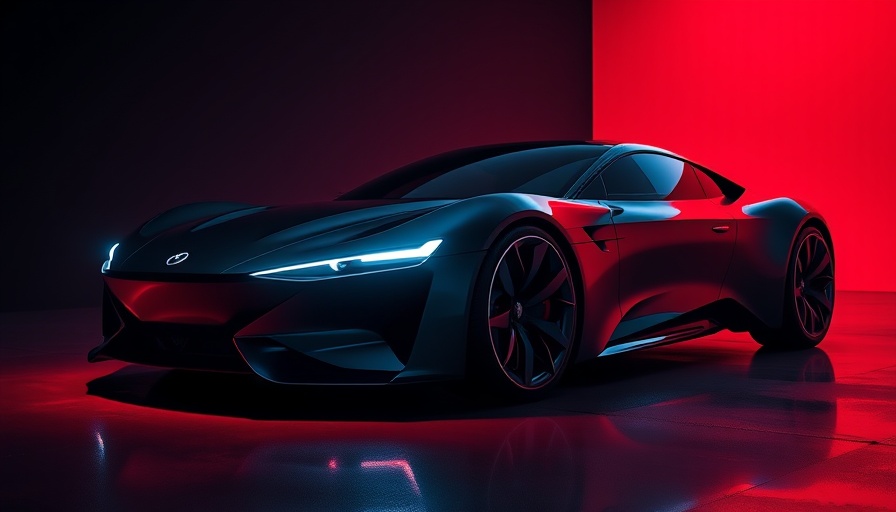
The Future of EV Charging: Tesla Takes the Lead
As electric vehicles (EVs) surge in popularity, charging infrastructure remains a key concern for potential buyers. Tesla's proprietary North American Charging Standard (NACS) is quickly becoming the industry benchmark, prompting a wave of automakers to adopt this technology. The implications for EV drivers are significant, providing an extensive charging network that could ease range anxiety and enhance the overall driving experience.
Why is Tesla's NACS Charging Network Significant?
Unlike traditional gas stations, EV charging has historically been fragmented, with multiple standards such as CHAdeMO and Combined Charging System (CCS) creating confusion for drivers. Tesla's NACS network, known for its fast charging and reliability, is now attracting the attention of other manufacturers. Ford was the first major automaker to join forces with Tesla, opening pathways for its customers to use the Supercharger network. Following this, several automakers have announced plans to adopt NACS, signaling a shift towards standardization that could unify the EV charging experience.
What Automakers Are Adopting Tesla's Charging Technology?
The list of automakers announcing their transition to Tesla’s NACS is growing, a critical step in enhancing EV compatibility nationwide. Here are some of the noteworthy brands:
- Ford: Already offering adapters for existing models, Ford plans to integrate NACS into new EVs by 2025, making it easier for their consumers to access Tesla's fast-charging stations.
- Audi: Committed to adopting NACS by 2025, Audi will develop both new models equipped with the NACS port and adapters for existing vehicles.
- BMW: Set to begin adopting NACS in early 2025, BMW is also working on features to facilitate in-car navigation to charging stations, enhancing user experience further.
- Genesis: Already leading the charge, Genesis has declared NACS as its exclusive charging standard.
The Benefits of a Unified Charging Standard
A unified charging standard, spearheaded by Tesla, could have far-reaching advantages for both manufacturers and consumers:
- Simplicity: A standard charging system would eliminate confusion for EV owners, allowing them to charge at more locations without worrying about compatibility issues.
- Fast Charging Across Brands: With more companies adopting NACS, EV drivers will have access to an ever-expanding network of fast-charging stations, all supporting various makes and models.
- Market Growth: As charging becomes easier for consumers, the overall adoption of electric vehicles is likely to rise significantly.
What Lies Ahead for Electric Vehicle Charging?
As Tesla continues to influence the automotive landscape, the shift towards a compatible charging standard is essential for the future of EVs. Increased collaboration with other brands is paving the way for broader adoption and user-friendly solutions. With the Electric Vehicle market growing exponentially, what remains clear is that the industry must adapt and innovate rapidly to meet the shifting demands of eco-conscious consumers.
Stay informed on the latest developments in the EV industry and charging infrastructure. Understanding the trajectory of these changes can empower EV owners, dealership owners, and general consumers alike, promoting a smoother transition to electric mobility.
 Add Row
Add Row  Add
Add 




Write A Comment